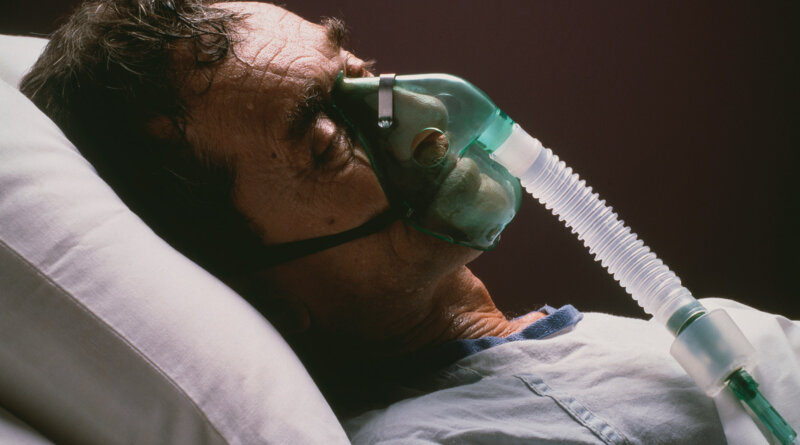What We’ve Learned About Treating COVID
Sept. 10, 2020 — This past spring, health care providers at hospitals around the country scrambled to treat people who were critically ill with a virus they’d only just heard of themselves. Usually, when a severely ill person arrives at the hospital, doctors already know or can quickly find established guidelines, based on years of research, for treating the sickness. But in the spring of 2020, nothing was established about COVID-19.
“It was a dramatic situation. We had a lot of sick people, in a very short period of time, and it was overwhelming to take care of them. There was an almost irrational exuberance to try any treatment that we could think of,” says David Kaufman, MD, director of medical intensive care at New York University Langone Health in New York City.
While doctors may have at times rushed to try anything, that trial and error over the last 6 months has helped accumulate the scientific evidence of what works and what doesn’t in the treatment of COVID-19.
“The ability of the medical community to pull together quickly to get these large critical care studies done in a very short period of time with reliable, high-quality results is amazing,” Kaufman says. “It’s like being in a wartime economy when all automobile and refrigerator factories convert to make tanks and planes.”
The Case for Steroids
At the start of the pandemic, doctors didn’t have a go-to medication they could give to critically sick COVID-19 patients admitted to their ERs and ICUs. Today, corticosteroids are that medication. Last week, on the heels of several scientific studies that supported the move, the World Health Organization (WHO) released its official recommendation that people with severe COVID-19 receive steroids to improve their chances of survival.
“Low-dose steroids for 10 days or until the patient is discharged, whichever one comes first, can actually help with symptoms, can avoid escalating to a ventilator, and can lower the risk of death,” says Javier Lorenzo, MD, a critical care anesthesiologist at Stanford Hospital and Clinics in Stanford, CA.
That’s because steroids act as anti-inflammatories. The worst cases of COVID-19 are marked by extreme inflammation that doesn’t let up. A little inflammation at the beginning of a viral infection helps fight it off. But in serious cases of COVID-19, the inflammation gets out of control and can eventually lead to organ failure and death.
“Steroids may not be good for people who have only had the infection for a few days because they may actually limit the body’s ability to fight infection,” Kaufman says. “But in people who are critically ill because of over-inflammation, steroids help put a lid on it.”
Growing Evidence for Remdesivir
In May, the FDA authorized hospitals to give remdesivir to adults and children with severe COVID-19. In late August, the agency expanded that authorization to anyone hospitalized with the virus.
In a study of 1,063 adults in the hospital with COVID-19, the ones who got remdesivir recovered in about 11 days compared to about 15 for those who got a placebo.
“This data is not quite as robust as it is for steroids,” Lorenzo says, “but we know that patients who get remdesivir can experience faster resolution of symptoms, shorter duration of hospitalization, and be less likely to need a ventilator.”
Controversy Over Convalescent Plasma
Also in late August, the FDA granted health care providers emergency use authorization for convalescent plasma in the treatment of COVID-19.
Plasma is the part of the blood that carries antibodies against viruses. In this case, the treatment uses plasma donated by survivors of COVID-19. The idea is that COVID-19 survivors have antibodies that fight the virus. Through plasma, doctors can pass those virus-fighting antibodies onto others struggling to fight the illness.
The concept dates back to at least the 1918 Spanish flu pandemic. But it’s unclear just how helpful it is in COVID-19. There hasn’t been a large, randomized, controlled clinical trial to compare the effects of convalescent plasma to placebo. Some trials are currently enrolling volunteers.
“The evidence for convalescent plasma is really weak,” Lorenzo says. “Not all plasma is equal. Not all plasma has high titers [high concentration of antibodies], and not all antibodies neutralize the virus. We’re using it, but it’s still not clear whether it’s effective or not.”
To Intubate or Not
Some critical care doctors may be holding off on intubating patients and putting them on a mechanical ventilator a little longer than they did earlier in the pandemic. Intubation requires heavy sedation and care in the ICU. Early in the pandemic, when doctors saw that patients were progressing in their need for oxygen, many erred on the side of caution and put patients on a ventilator sooner rather than later.
At the time, before doctors knew the benefits of steroids and remdesivir, the thought was that the patient would escalate and eventually need the ventilator no matter what.
“So if we did it early, rather than waiting until it was an emergency, when we could take our time donning the personal protective equipment, we would also reduce the risk of exposure to our health care workers,” Lorenzo says.
Doctors were also concerned that oxygen delivered through a tube in the nose – a step below a mechanical ventilator — could push the virus out into the air and increase exposure risk for health care workers, too.
“But we now know that in some patients, if we give the steroids and remdesivir a little bit more time, and allow them to escalate a little further along with high-flow nasal [oxygen], we might just squeak by and not have to put them on a ventilator,” Lorenzo says.
In Stanford’s ICU, Lorenzo says, they are now confident their staff are protected. “The risk of aerosolization of the virus is real. But we now know that our health care provider infection rate is low. So if we maintain our full PPE guidelines, then the risk of transmission is low, and we might be able to prevent the patient from escalating to a ventilator.”
New research shows this may be a safe risk to take. A recent study found that there was no difference in survival rates among COVID-19 patients who went directly on a ventilator and those who were put on nasal oxygen first.
Prone to Recover Faster
Some patients on ventilators may recover faster by spending some time each day lying prone, or face down. It doesn’t work for everyone. But for those who benefit, the idea is that the face-down position may distribute oxygen more evenly throughout the lungs. Long before COVID-19, critical care providers flipped sedated patients on ventilators onto their stomachs in order to get more oxygen into their lungs.
But since the pandemic, some ICUs are trying it on patients who are awake and perhaps on the way to needing a ventilator. Numerous clinical trials in progress are examining the benefits for patients who are not yet on a ventilator but struggling to get oxygen.
“For some patients, the oxygen level goes up, but it’s not universal,” Kaufman says. “And soon after you stop lying on your stomach, the oxygen goes back down.”
Unprecedented Collaboration
On the road to finding what works, health care providers have thrown out many things that proved not to work, too.
“A lot of people were talking about hydroxychloroquine,” Lorenzo says. “But we now know, unequivocally, that we shouldn’t be using it. It doesn’t work. And it probably can cause more harm than good.”
They’ve learned what works and what doesn’t more quickly through unprecedented collaboration with their co-workers and frontline health care workers around the globe.
Under “normal” circumstances, researchers tightly guard data until it is published. “Now, some of these trials may release unpublished data if they feel that the benefit is real and substantial,” Lorenzo says.
Social media groups for critical care doctors, he says, are also more active than ever.
Kaufman is part of an email chain with pulmonologists and critical care doctors from all over the world. Many are in Europe and got intensive experience with COVID-19 months ahead of doctors in the U.S. “To be connected with some of the worldwide masters in mechanical ventilation who are at some of the hardest hit cities in the world is an amazing privilege. It’s like sitting at the foot of Sophocles, learning from the ancient masters,” he says.
But for all they’ve learned, much is still unknown. Doctors still don’t understand why some patients get through the virus after a week of mild symptoms while others escalate to a ventilator in the same amount of time. “We still don’t know how patients progress in this disease,” Lorenzo says.
But after a frenzied springtime in which many health care providers tried anything that might work, Lorenzo says, “We have learned from this pandemic that we can’t relax our scientific rigor. We have to abide by the same process of peer-reviewed clinical trials that we normally do or we can harm patients.”




Great selection of modern and classic books waiting to be discovered. All free and available in most ereader formats. download free books
https://www.philadelphia.edu.jo/library/directors-message-library
https://www.philadelphia.edu.jo/library/directors-message-library
Definitive journal of drugs and therapeutics. Comprehensive side effect and adverse reaction information.
herbal ed treatment
Prescription Drug Information, Interactions & Side. Read information now.
Get here. drug information and news for professionals and consumers.
https://edonlinefast.com
Commonly Used Drugs Charts. Get here.
Some trends of drugs. Some are medicines that help people when doctors prescribe.
best treatment for ed
Read information now. Some trends of drugs.
Great selection of modern and classic books waiting to be discovered. All free and available in most ereader formats. download free books
I have read so many posts about the blogger lovers however this post is really a good piece of writing, keep it up
Writing with style and getting good compliments on the article is quite hard, to be honest.But you’ve done it so calmly and with so cool feeling and you’ve nailed the job. This article is possessed with style and I am giving good compliment. Best!
I have to search sites with relevant information on given topic and provide them to teacher our opinion and the article.
This is an excellent post I seen thanks to share it. It is really what I wanted to see hope in future you will continue for sharing such a excellent post.
A good blog always comes-up with new and exciting information and while reading I have feel that this blog is really have all those quality that qualify a blog to be a one.
I really loved reading your blog. It was very well authored and easy to understand. Unlike other blogs I have read which are really not that good.Thanks alot!
Wow! Such an amazing and helpful post this is. I really really love it. It’s so good and so awesome. I am just amazed. I hope that you continue to do your work like this in the future also.
Thanks for your post. I’ve been thinking about writing a very comparable post over the last couple of weeks, I’ll probably keep it short and sweet and link to this instead if thats cool. Thanks.
I would like to say that this blog really convinced me to do it! Thanks, very good post.
Great post I would like to thank you for the efforts you have made in writing this interesting and knowledgeable article.
Hi, I log on to your new stuff like every week. Your humoristic style is witty, keep it up
They’re produced by the very best degree developers who will be distinguished for your polo dress creating. You’ll find polo Ron Lauren inside exclusive array which include particular classes for men, women.
Loving the information on this website , you have done outstanding job on the articles.
First You got a great blog .I will be interested in more similar topics. i see you got really very useful topics, i will be always checking your blog thanks.
Really nice and interesting post. I was looking for this kind of information and enjoyed reading this one.
Thanks for posting this info. I just want to let you know that I just check out your site and I find it very interesting and informative. I can’t wait to read lots of your posts.
It is perfect time to make some plans for the future and it is time to be happy. I’ve read this post and if I could I desire to suggest you few interesting things or tips. Perhaps you could write next articles referring to this article. I want to read more things about it!